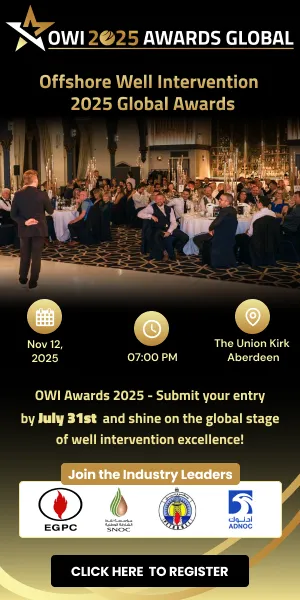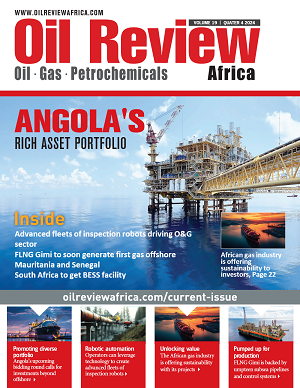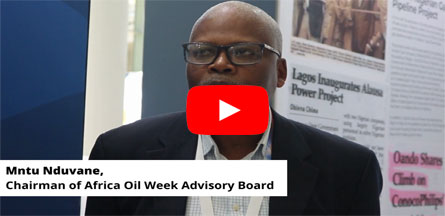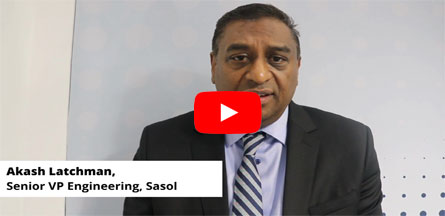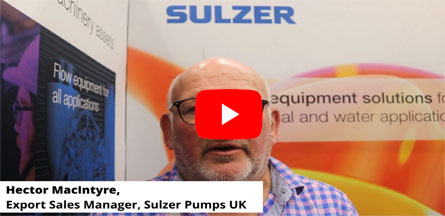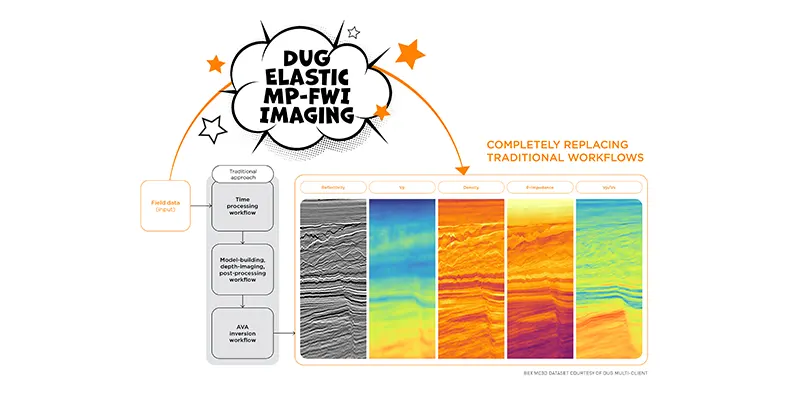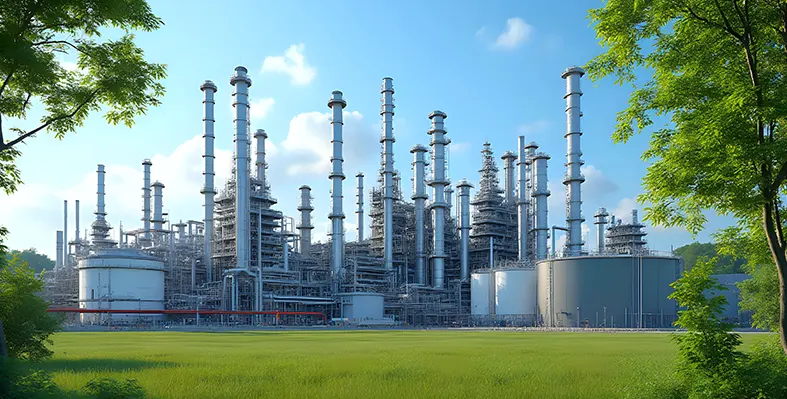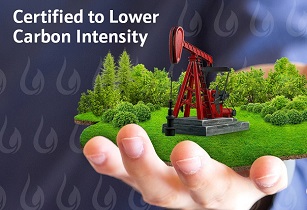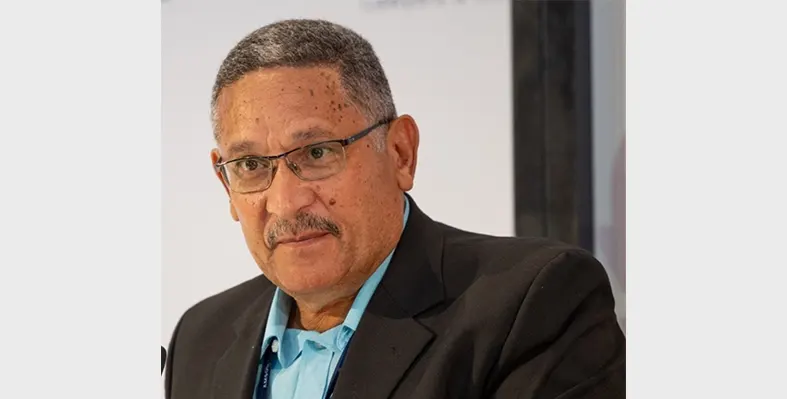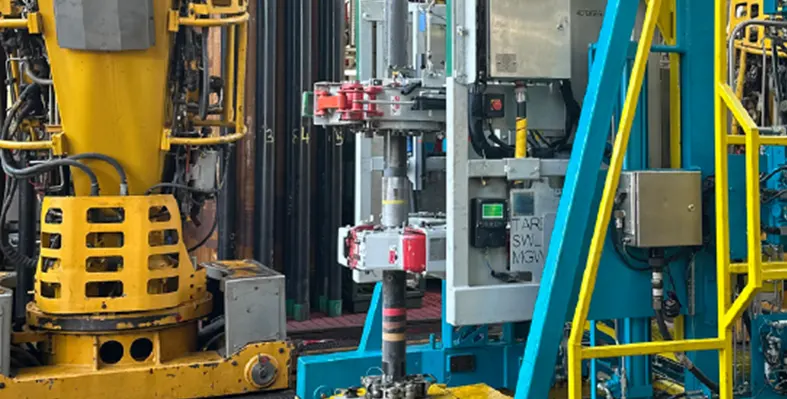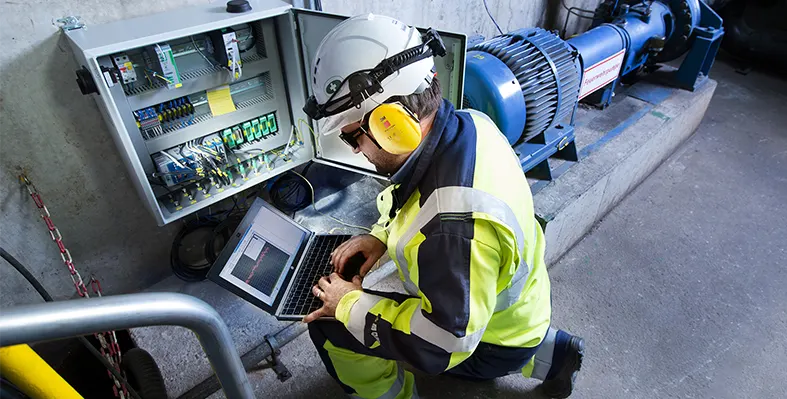In The Spotlight
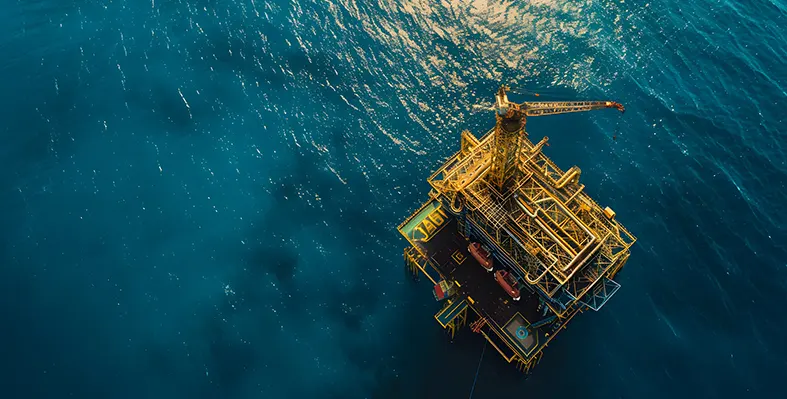
The Cabora Bassa Project will be receiving National Project Status (NPS). (Image source: Adobe Stock)
Invictus Energy Limited's Petroleum Production Sharing Agreement (PPSA) for its 80%-owned and operated Cabora Bassa Project in Zimbabwe has been consolidated with the Petroleum Exploration Development and Production Agreement (PEDPA) to ensure long-term results
This comes following close cooperation with the relevant line ministries to finalise the terms of the PPSA. The consolidation will ensure robust, balanced, and transparent agreement that meets international standards.
The Cabora Bassa Project will be receiving National Project Status (NPS) from the Ministry of Finance, recognising its potential to deliver broad-based economic benefits, attract foreign investment, and create employment. This will unlock for Invictus a suite of fiscal and non-fiscal incentives including duty exemptions, fast-tracked permitting, and streamlined access to key infrastructure and services.
Invictus is progressing the contracting and procurement of long lead items and critical services in preparation for the Musuma-1 exploration well, scheduled to spud in the second half of 2025.
Mthuli Ncube, Zimbabwe's Minister of Finance, said, “The Cabora Bassa Project is a nationally significant development, and we are working closely with Invictus to finalise the PPSA and ensure a transparent, fair and commercially sound agreement. The Government looks forward to the successful formalisation of National Project Status and the long-term benefits the project will bring to Zimbabwe.”
Invictus managing director, Scott Macmillan, said, “We are greatly encouraged by the Government’s continued support and the positive momentum towards finalising the PPSA. The Ministry of Finance’s agreement to provide National Project Status is a key milestone, and we look forward to completing the formalities in due course. We remain on track with preparations for Musuma-1 and are excited about the next phase of activity at Cabora Bassa.”

The initialling marks a significant step forward to securing Block KON4. (Image source: Adobe Stock)
Aiming to acquire an operated interest onshore Kwanza basin in Angola, Afentra plc has initialled a risk service contract (RSC) for Block KON4
The initialling marks a significant step forward to securing Block KON4. Under the terms of the proposed KON4 RSC, Afentra will be Operator with a 35% equity interest. The Block offers both short cycle, low-cost production opportunities linked to field redevelopment alongside low-cost near-term exploration potential similar to that being pursued in KON15 and KON19. The contract will now progress through the formal governmental approval process, and the company will provide a further update to the market once the agreement has been fully executed and signed.
Paul McDade, Chief Executive Officer of Afentra plc, said, "The initialling of the KON4 RSC is a significant step in our continued strategy to build a material position in onshore Kwanza basin in Angola. While this marks the beginning of the formal approval process, we are already working closely with our partners in the contractor group to prepare for an efficient review of the block's existing oil fields and the potential for early development opportunities. In addition, we will be bringing our significant experience in the use of eFTG data, which is currently being acquired across the basin, to understand the full exploration potential of KON4 as well as our other licenses KON15 and KON19.
"The addition of the KON4 license to our existing onshore licenses will represent a compelling opportunity to work with local Angolan companies to both revitalise historic oil fields with modern production and development techniques as well as understand the full exploration potential of this underexploited basin where exploration activities stopped over 40 years ago."
Covering 1,387 sq km, Block KON4 has seen the discovery of 11 oil and two gas fields, producing more than 90 mmboe to date. The block features the Quenguela Norte field - the largest onshore discovery to date - estimated to hold over 200 mmbbls of discovered oil in place. The field achieved peak production of 12,000 bopd, with 42 mmbbls recovered before it was eventually shut-in and abandoned in 1999. This represents an opportunity to unlock significant value through the reactivation of legacy oil fields, supported by modern technology and re-development techniques that have advanced considerably since the fields were last in production decades ago. In addition, the Block's proximity to the Luanda refinery and the existing road infrastructure could allow early production and export to the refinery.
KON4 also provides low-cost, near-field exploration opportunities that further enhance Afentra's footprint and strategic optionality in the onshore Kwanza basin. The three blocks together offer a complementary portfolio with exposure to a diverse range of play types - across both post-salt and pre-salt petroleum systems - as well as opportunities to appraise and re-develop multiple discovered but abandoned oil fields.
As part of production optimisation strategy, the Republic of Congo is advancing investments on infrastructure development
With aims to expand the container terminal at the Port of Pointe Noire, a €230mn in financing has been generated to onboard freight forwarding service Africa Global Logistics (AGL) for the project.
The new 750-meter quay – scheduled for completion by 2027 – will double the terminal’s capacity to 2.3 million containers annually and support the country’s growing oil and LNG exports.
The Pointe Noire project is being executed by AGL’s subsidiary Congo Terminal in collaboration with engineering firm China Road and Bridge Corporation. Backed by both international and Congolese banks, the €400mn platform will include 26 hectares of quayside, a dredged 17-meter-deep basin, and the installation of 16 gantries. It forms a key part of Congo’s strategy to boost hydrocarbon production to 500,000 barrels of oil per day and LNG output to 3 million tons per annum within five years.
In Angola, AGL also launched operations at its Lobito Terminal in March last year. The terminal – Angola’s second-largest port hub – handles over one million tons of bulk cargo and more than 100,000 20-ft equivalent unit containers annually, with 730 employees operating deepwater berths and modern equipment. The project comes at a pivotal time for Angola, which is preparing to bring several major energy developments online between 2025 and 2028. These include the Cabinda Oil Refinery in 2025, the Agogo Integrated West Hub development in late-2025, the Quiluma and Maboqueiro gas fields in 2026 and the Kaminho Deepwater Development in 2028.
Meanwhile, in Ivory Coast, AGL is playing a vital role in Phase 2 of the Baleine offshore development - West Africa’s first net-zero emissions project. In partnership with engineering firm Saipem, AGL began manufacturing critical subsea structures for the Baleine field in April 2024 at its Carena shipyard in Abidjan. The works include anchoring systems and underwater fixtures totaling over 200 tons, to be deployed in ultra-deep waters. AGL has mobilized 100 skilled local workers – including certified welders, painters and crane operators – reinforcing its commitment to local content, capacity building and sustainable energy infrastructure in Ivory Coast’s rapidly growing oil and gas sector.
AGL’s recent activities in Africa align with its broader vision to support the continent’s energy infrastructure. In addition to the Republic of Congo, Angola and Ivory Coast, the company is currently modernising the Walvis Bay terminal in Namibia while playing a key role in major energy logistics across Mauritania, Senegal and Mozambique.
Oando Oil Limited is now closer to its production goals as African Export-Import Bank (Afreximbank) completes upsizing its reserve-based lending facility in favour of the oil and gas company for US$375mn
The company’s pay down of the original US$525mn facility, secured in 2019, to US$100mn in 2024 created significant headroom for refinancing and enhancing Oando’s financial flexibility.
Alongside Afreximbank, the upsizing was also supported by Mercuria Asia Resources PTE Limited (Mercuria). This will advance Oando’s strategic capital management, aiding the company's ambition to achieve production of 100,000 barrels of oil per day and 1.5 bn cu/ft of gas per day by the end of 2029, effectively boosting Nigeria’s oil output and reinforcing the country’s position in the global energy market.
The upsizing will also lead to local economic growth by creating jobs, upgrading infrastructure, and fostering technological advancements in the oil and gas sector.
“We are pleased to have completed the upsizing of our RBL facility, a strategic milestone that reinforces our commitment as Operator of the Oando-NEPL JV to maximising the value of our expanded asset portfolio. Our Joint Venture holds extensive reserves with the potential to generate over US$11bn in net cash flows to Oando over the assets’ life. This working capital facility is a critical enabler towards efficiently extracting and monetising these resources. We appreciate the continued partnership of Afreximbank and Mercuria, whose unwavering support underscores their alignment with our long-term focus on maximizing production, optimizing asset performance, and delivering sustainable value to all stakeholders,” said Wale Tinubu, group chief executive, Oando PLC and executive chairman, Oando Energy Resources.
“Afreximbank remains a longstanding financial partner to Oando PLC and its affiliates and has consistently supported the company’s growth and expansion initiatives. We are delighted that Mercuria, one of the world’s largest independent energy and commodities groups and one of our partners, has brought its global expertise and financial backing to the transaction, further strengthening Oando’s ability to execute its production growth strategy,” said Haytham Elmaayergi, executive vice president, Global Trade Bank, Afreximbank, as he stressed on Afreximbank's focus in promoting local content in the region's oil and gas sector.
88 Energy Limited has secured license extension for 12 months from the Namibian Government, extending the PEL 93 First Renewal Exploration Period to 2 October 2026
During the extended period the company will aim datasets Integration to select drilling location, and complete an Environmental Impact Assessment (EIA) for drilling.
The PEL 93 is located in the Owambo Basin, onshore Namibia.
A farmout agreement with Monitor Exploration Limited for a joint venture gives 88 Energy Limited a 20% working interest in PEL 93. By way of an amendment on the agreement, the partners have introduced a new stage 1A work programme to target pre-drill de-risking.
The 2024 2D seismic data collected from an anticlinal structure -- Lead 9 -- spreading across 100 sq km has led to new insights to be unlocked from a gravity survey area. The partners have hence included on the programme a high-resolution gravity survey to focus on the southern area of PEL 93. The survey will be supplemented by radiometric data.
This anticipation has been strengthened by similar findings from the Kavango West 1X exploration well where ReconAfrica is now all set to start drilling this month.
Lead 9 is similar to Recon’s imminent Kavango West 1X well in that both show a very large and robust structural closure including the shallow clastic reservoirs, the deeper Otavi carbonate reservoir seen in Naingopo-1 and the deeper source rocks.
Monitor's statement read, “Our early results are pointing to something potentially significant in the southern area of PEL 93 in the Owambo Basin. With multiple datasets aligning and the prospect of even larger structures emerging, the Joint Venture is building momentum towards a drilling event and what could be a basin opening discovery with broad implications for all of Namibia given the significance in unlocking a major new hydrocarbon play.”
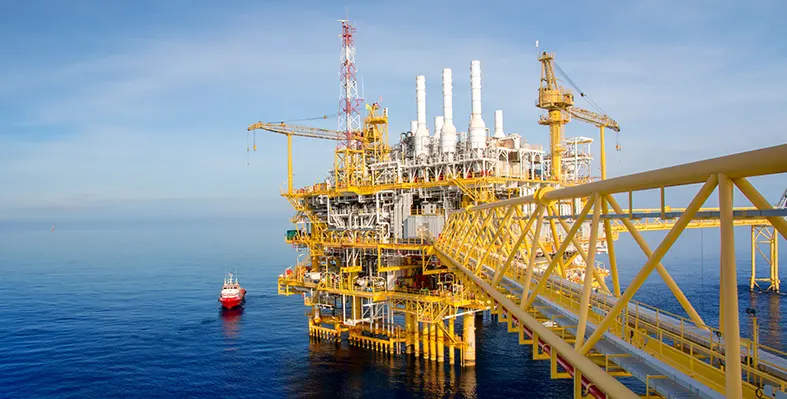
The project will involve the installation of compact twin-well configurations. (Image source: Adobe Stock)
The engineering, procurement, installation and commissioning work for Phase XI Deepwater Project of the West Delta Deep Marine (WDDM) concession has been vested on Petroleum Marine Services (PMS) by independent engineering consultancy Longitude Engineering
Longitude’s engineering scope comprises the detailed design of deep-water rigid jumpers, development of fabrication drawings, onshore and offshore handling procedures, offshore installation engineering, process and stress modelling, and key HSE studies and engineering workshops.
The Phase XI development of the Burullus gas field involves the tie-in of three subsea twin deep-water natural gas wells. The scope of work includes engineering, procurement, fabrication, installation, and commissioning support five subsea M-shape rigid jumpers, equipped with deep-water specialised connectors, multiphase gas meters, and sand detection systems.
Compact twin-well configurations will be installed, each with a subsea jumper span limited to approximately 25 meters in length. This will be placed in a brownfield environment adjacent to an existing live natural gas deep-water system, part of one of the largest deep-water natural gas networks globally.
A tie-in structure, namely “Tie-In Spool Base, TSB” designed to accommodate multiple jumpers within a single subsea module will offer enhanced production flexibility and enabling well allocation interchangeability.
Subsea control system components to support well operation and chemical injection.
Located approximately 90 kilometres offshore Egypt, in the north-western Nile Delta region of the Mediterranean Sea, the WDDM concession is operated by Shell through its joint venture, Burullus Gas Company. The area includes 17 gas fields at water depths ranging from 300 to 1,200 meters.
“We are delighted to secure this contract following the success of our previous work on Phase X. The West Delta Deep Marine development is of major significance to Egypt’s oil and gas sector, and we remain committed to delivering the highest quality of service to PMS and, ultimately, to the operator,” said Daniel McGowan, Offshore Project Director at Longitude Engineering.
Longitude Engineering provides specialised engineering, design, and analysis consultancy services across various markets, including renewables, maritime, oil and gas, and infrastructure. The company’s expertise spans concept selection, Pre-FEED and FEED studies, marine operations engineering, and vessel design.
Independent oil and gas company, Perenco, has recently commissioned a floating LNG (FLNG) vessel to advance gas commercialisation offshore Gabon while also repurposing flared gas
In line with Gabon's first large-scale gas development, this is a flagship project in the Cap Lopez LNG terminal that is set to come online in 2026.
The FLNG is currently undergoing construction in Dubai as it promises to reach a capacity of 700,000 tons of LNG and 25,000 tons of LPG anually, backed by storage infrastructure capable of holding 137,000 cu/m.
This US$2bn project is being supported by Perenco's affiliate Dixstone under a contract with engineering and construction company, Technomak, for the integration of the offshore FLNG barge.
The Cap Lopez project will significantly contribute to Perenco's natural gas strategy, while also serving as a means for energy diversification and larger economic growth of the country. It will also ensure energy security and industrialisation.
This development moves alongside Perenco's major optimisation project in the Republic of Congo as well. The company has initiated the construction of the Kombi 2 platform on the Kombi-Likalala-Libondo II permit. Amounting to more than US$200mn, the project will see new drilling phases, infrastructure upgrades and the optimisation of existing wells.
As part of production optimisation strategy, the Republic of Congo is advancing investments on infrastructure development
With aims to expand the container terminal at the Port of Pointe Noire, a €230mn in financing has been generated to onboard freight forwarding service Africa Global Logistics (AGL) for the project.
The new 750-meter quay – scheduled for completion by 2027 – will double the terminal’s capacity to 2.3 million containers annually and support the country’s growing oil and LNG exports.
The Pointe Noire project is being executed by AGL’s subsidiary Congo Terminal in collaboration with engineering firm China Road and Bridge Corporation. Backed by both international and Congolese banks, the €400mn platform will include 26 hectares of quayside, a dredged 17-meter-deep basin, and the installation of 16 gantries. It forms a key part of Congo’s strategy to boost hydrocarbon production to 500,000 barrels of oil per day and LNG output to 3 million tons per annum within five years.
In Angola, AGL also launched operations at its Lobito Terminal in March last year. The terminal – Angola’s second-largest port hub – handles over one million tons of bulk cargo and more than 100,000 20-ft equivalent unit containers annually, with 730 employees operating deepwater berths and modern equipment. The project comes at a pivotal time for Angola, which is preparing to bring several major energy developments online between 2025 and 2028. These include the Cabinda Oil Refinery in 2025, the Agogo Integrated West Hub development in late-2025, the Quiluma and Maboqueiro gas fields in 2026 and the Kaminho Deepwater Development in 2028.
Meanwhile, in Ivory Coast, AGL is playing a vital role in Phase 2 of the Baleine offshore development - West Africa’s first net-zero emissions project. In partnership with engineering firm Saipem, AGL began manufacturing critical subsea structures for the Baleine field in April 2024 at its Carena shipyard in Abidjan. The works include anchoring systems and underwater fixtures totaling over 200 tons, to be deployed in ultra-deep waters. AGL has mobilized 100 skilled local workers – including certified welders, painters and crane operators – reinforcing its commitment to local content, capacity building and sustainable energy infrastructure in Ivory Coast’s rapidly growing oil and gas sector.
AGL’s recent activities in Africa align with its broader vision to support the continent’s energy infrastructure. In addition to the Republic of Congo, Angola and Ivory Coast, the company is currently modernising the Walvis Bay terminal in Namibia while playing a key role in major energy logistics across Mauritania, Senegal and Mozambique.
As Africa is zooming in on brownfield sites for maximum oil recovery, artificial intelligence and machine learning technologies are fuelling the industry's optimisation goals
Redifining operational efficiency by extending field life and maximising output, AI is set to move the oil and gas industry at a US$6.4bn market value by 2030.
As major operators increasingly adopt AI, global oilfield technology companies like Baker Hughes, Halliburton or SLB have opened bases in Africa. SLB's technology is backing several billion-dollar oil projects in Angola, and has introduced the Africa Performance Centre in Luanda this year. It has a strong presence in other regions of Africa as well.
Repsol has several developments underway in Libya, Algeria and Morocco and strives to bolster production across these markets.
Enhanced oil recovery is currently witnessing a disruption as AI has unlocked access to large datasets which is unimaginable with traditional systems. This makes a huge difference for operators in taking the right decisions. With deep geological and production data in hand, reservoir management and pattern identification become much simpler.
AI is now way past the experimental stage, and is being adopted on a policy level as well. Many African countries are streamlining policy to support EOR at legacy assets. Angola, for example, implemented its Incremental Production Initiative in 2024 which offers tax incentives to encourage reinvestments in mature oilfields. Energy major ExxonMobil made the first discovery – the Likembe-01 well - as part of the initiative in 2024, demonstrating the role policy plays in unlocking incremental resources. The African Union Commission also declared AI as a strategic priority for the continent in May 2025, citing the role machine-learning plays in transforming the continent’s development trajectory.
These topics will drive conversations at the African Energy Week (AEW): Invest in African Energies 2025 that will be taking place from 29 September 29 to 3 October in Cape Town.









